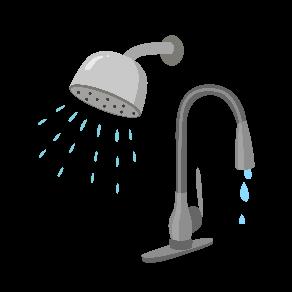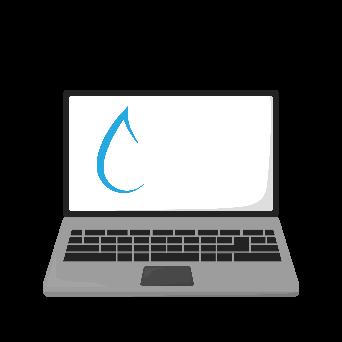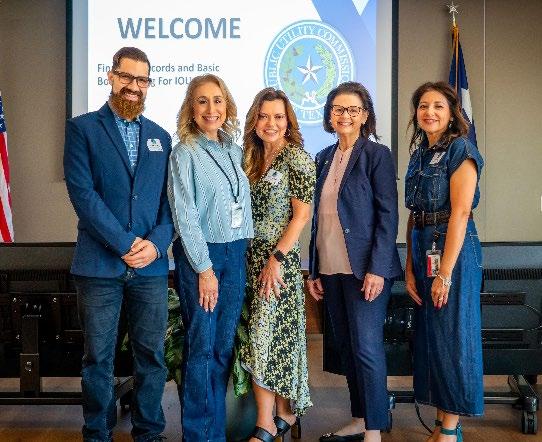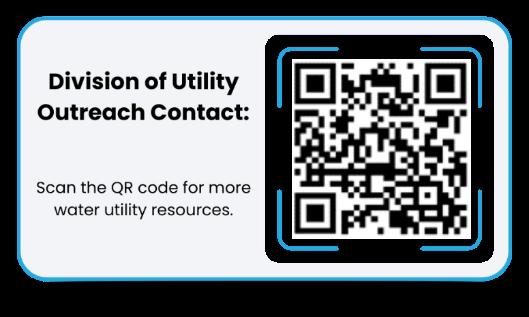

Educating Customers About Winter Months Averaging for Sewer Billing
If your utility uses winter months averaging to calculate sewer charges, now is the time to educate your customers. Winter months averaging typically occurs between November and February when outdoor water use is minimal. This method helps ensure sewer bills reflect actual indoor water usage, which is water that enters the wastewater system; however, many customers don’t know how their winter water habits can impact their sewer bills for the entire year.
Here are ways your utility can help customers understand and prepare:


FAQ
Send out reminders via bill inserts, email newsletters, and social media explaining what winter averaging is and why it’s used.
Provide tips on reducing indoor water use, such as fixing leaks, running full loads in dishwashers and laundry machines, and taking shorter showers.

Update your website with a dedicated page or FAQ section on winter averaging, including billing cycle dates and conservation tips.
Clear communication builds trust and helps customers make informed choices. By educating your community, you can reduce confusion, improve satisfaction, and promote water conservation.
Retail public sewer utilities that use winter months averaging for sewer billing should also review their tariffs and rate schedules to ensure they include the correct winter months used by the utility to calculate sewer bills. The tariff and rate schedules should also inform new customers how sewer bills will be calculated if a winter months average has not been established.
Winterizing Water Infrastructure: A Seasonal Priority for Utilities
As colder weather approaches, retail public water utilities across Texas should prepare their systems to withstand freezing conditions. Winter storms pose serious risks to water and wastewater infrastructure, leading to service disruptions, equipment failures, and costly emergency repairs. From a regulatory standpoint, we encourage utilities to protect critical assets and ensure continuity of service. Key winterization practices include:
• Insulating exposed infrastructure, including meters, valves, and above ground piping.
• Testing backup generators and fuel supplies to maintain operations during power outages.
• Reviewing emergency response plans and critical infrastructure information.
• Training field staff on cold weather protocols and rapid response procedures
In addition to infrastructure readiness, utilities should also focus on customer education. Tell residents how to protect household plumbing, such as wrapping pipes, locating shut-off valves, and reporting leaks Use bill inserts and website updates to share winter preparedness tips. Utilities that communicate early and clearly often see fewer emergencies and stronger community trust.
PUCT Launches Bookkeeping and Records Management Workshop Series
The PUCT recently hosted the first of four in-person workshops focused on basic bookkeeping and records management for small and mid-sized water and sewer utilities. These workshops are part of the PUCT’s efforts to support small and mid-sized utilities in strengthening their administrative practices. Participants received practical guidance and had the opportunity to ask questions directly to PUCT Staff and contractors.
The workshops are designed for operators and staff who may not have formal training in bookkeeping. By improving recordkeeping and financial management, utilities can enhance transparency, streamline the completion of rate applications, and better serve their customers.

Three additional workshops will be held, with the next one scheduled for January 22, 2026, in Boerne located at the Patrick Heath Public Library, 451 North Main St., Bldg. 100, Boerne, TX 78006.
For more information or to register for upcoming workshops, go to the PUCT Division of Utility Outreach website.
Join the Conversation
We value your input! This newsletter is about sharing information and creating a dialogue. If you have questions, feedback, or topics you’d like to see covered, we encourage you to reach out.
DUO is committed to helping retail public water and sewer utilities understand, navigate, and achieve regulatory compliance with the PUCT. DUO@puc.texas.gov


